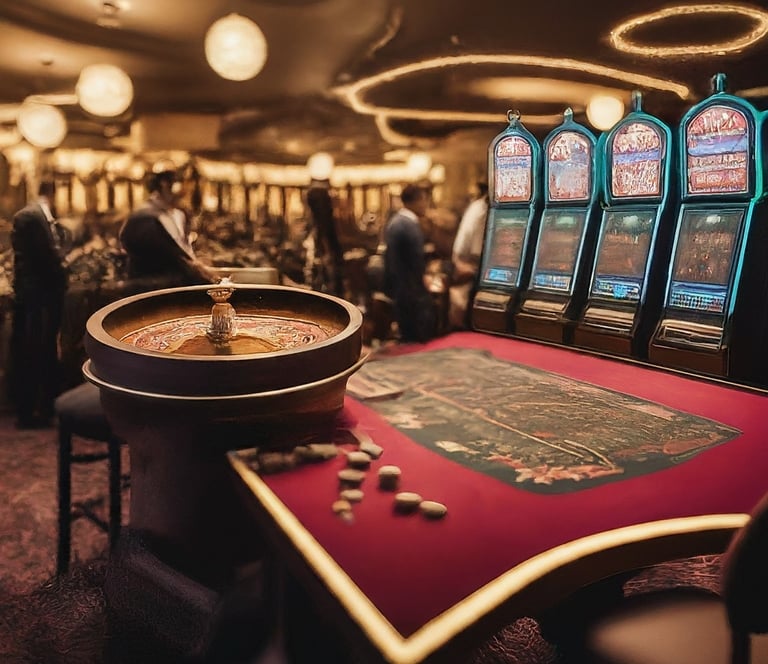Legalization Of Betting And Gambling
Kumari Sneha
It has been written by Kumari Sneha, a fifth-year law student of Heritage Law College.


INTRODUCTION
Gambling consists of placing a bet of keeping some valuable thing, where an element of chance is involved, and a reward is at stake. It usually includes the risk of winning or losing substantial amounts of money based on an unforeseeable event. In other terms, the practice of risking money or other valuable things. It is a wide in terms and there are many forms of it, like lotteries, card games, poker, casino, betting on sports events like cricket or horse race and many more.
The origin of sports betting in India dates to 2500BC. Based on Indian books of Mahabharata and Ramayana have marked that the people used to bet by rolling dice where stakes included anything from kingdoms to small bets. The recent controversy of betting in India is about its most popular sport, cricket, that once again brought into limelight. The growth of online betting in India has gained more people access to these virtual platforms. It has also allowed people to place bets from any place and time according to their convenience.
The debate is all about legalizing and regularizing gambling and betting activities in India. You will be thrilled to know that the government is giving serious thought to legalization of sports betting.
But why? Because the government has discovered the potential benefits of sports betting to the economy as a source of revenue.
The debate on online betting in India is somewhere confusing.
LEGALIZATION
The Constitution of India in its Seventh Schedule, List II (State List) empowers the State Governments to make laws regarding gambling and betting activities.
Gambling falls under the jurisdiction of individual states within their boundaries.
In India, some states, like Goa, Sikkim, West Bengal and Nagaland, have taken legislative efforts to provide clarity by either listing prohibited games or excluding games of skill from the definition of gambling. Games of skill involve elements such as experience, attention, training, and special skill. The games like horse racing. rummy, bridge, and video games come within the ambit of game of skill.
In states like Goa and Sikkim are granted with the licence for activities like slot machines and casinos, gambling is also allowed to a certain degree.
States like Assam, Odisha, and Telangana have completely banned games such as poker and rummy, game of chance as well as games of skill.
The Sikkim State Legislative Assembly enacted the Sikkim Online Gaming (Regulation) Act, 2008 in 2008, and it went into effect on July 1st, 2009. The Act, which was formerly restricted to poker and casino games including pontoon, poker, bingo, blackjack, baccarat and more, provides for the regulation of online gaming in Sikkim.
The only state in India that allows sports wagering online through websites using Sikkim-based servers is Sikkim.
GAME OF CHANCE VERSUS GAME OF SKILL
GAME OF CHANCE:
A game of chance is determined mainly by a random factor of any type. The usage of skill is present, but a higher level of chance determines the success.
Luck plays a crucial role in determining results because players have no control over the winning.
Games like playing cards, roulette, rolling a dice, blackjack or even picking a numbered ball are reflected upon as chance-based games.
GAME OF SKILL:
Given that the players actions have a direct impact on the games result, they have a major influence over the outcome.
Achieving success in skill-based games always give results from practice, knowledge, strategy and experience, as players continuously hone their skills and strategies over time.
Video games, chess and poker are some of the examples of game of skill.
In the case of Dr. K.R. Lakshmanan vs. State of Tamil Nadu (AIR 1996 SC 1153), a three-judge bench of the Supreme Court classified horse racing as a skill-based activity. The Court noted that betting on horse racing requires evaluating the horses' physical abilities and applying specific expertise. Horse racing is an organized institution. There is nothing illegal in horse racing, horse racing is a lawful sport. Considering the conversation and the sources we cited, we maintain that horse racing is a game in which skill plays a major and overwhelming role in victory. Certain states have excluded horse racing from their definition of gambling—West Bengal, Delhi, Maharashtra, Tamil Nadu, Assam and Karnataka.
The Hon'ble Supreme Court ruled in State of Andhra Pradesh v. K. Satyanarayana (AIR 1968 SC 825) that rummy is not entirely a game of chance, but the "three card" game is pure a game of chance.
CONCLUSION
Legalization of gambling is not an easy task in a country like India. The government must make amendments, provisions and enact some rules and regulations before making any move further.
The government should protect the interest of people and to prevent any harm. Infrastructure like policy machinery and prosecutors or grievance redressal mechanism should be set up at both state and central level by the government. The government should ensure that the rules and regulations are perfectly implemented and to ensure that the perpetrators are punished.
While money generating is one of the many advantages, there are also major obstacles in the way of social impact and efficient regulation. Any legalization would necessitate thorough planning and extensive regulatory frameworks in order to minimize risks and optimize rewards.
REFERENCES:
1- 1996 AIR 1153, 1996 SCC (2) 226
2- The Public Gambling Act, 1867
3- 1968 AIR 825, 1968 SCR (2) 387
4-https://www.hariani.co.in/newsletters/August_7_2013.pdf
5-Sikkim online gaming (regulation) Act, 2008
